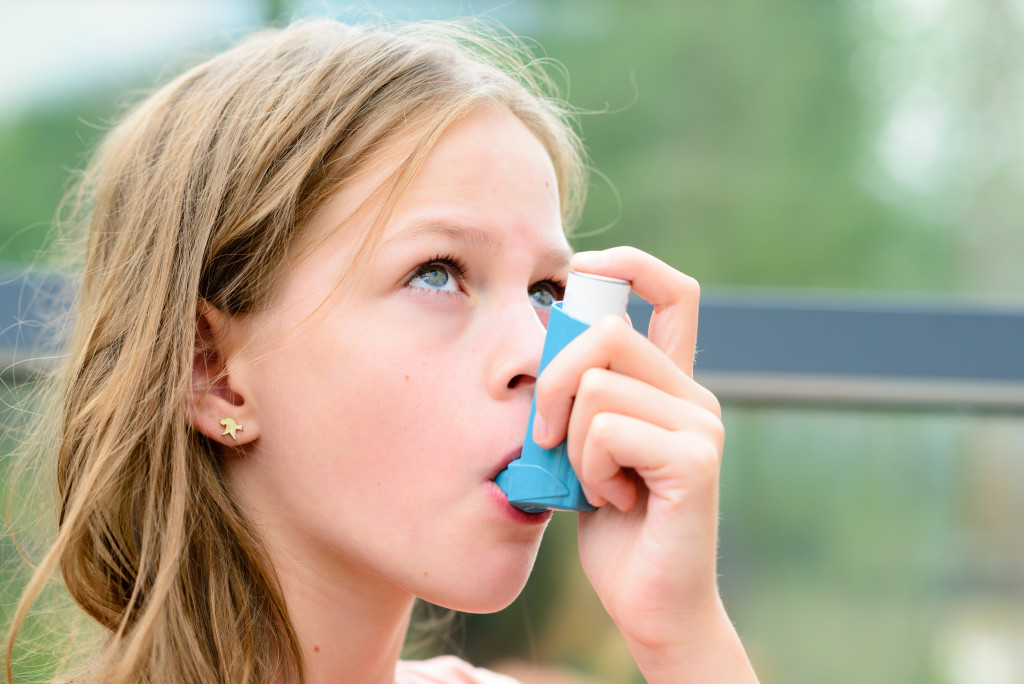If you’ve ever been out during spring and started sneezing or having a runny nose, you might be allergic to pollen or something close to you. Contrary to what most people think, allergic reactions are more than just a minor annoyance. They can also be fatal, especially to children.
What Causes Allergic Reactions?
There are several causes of allergic reactions, but the leading causes of allergic reactions are quite common and will come in the form of pet dander, insect bites, and food.
Frequently, common allergies are passed down from one generation to another. A child’s genetics will play a significant role if ever a child will develop allergies for certain types of food or substances.
If children will have siblings or parents that are allergic to a particular substance, there is a good chance that the child will also inherit the same allergies. However, the nature of the allergic reaction and the severity of it is not necessarily the same as the child’s reactions.
Since the severity of the reaction can vary, it could range from being quite mild to being fatal. The substance that the child will ingest into their system isn’t necessarily what is causing harm. Still, it is the antibodies of the body that are “overreacting,” which can cause most of the antibodies to produce histamine, which can cause an inflammatory response.
This inflammatory response could be anywhere in the body. When a child encounters allergens, such as nuts or pet dander, their body will react, and histamine is produced. But the more dangerous forms of inflammation are on your throat, which can block passageways for hair. If not treated on time, this could lead to suffocation.
In some cases, insect bites can also cause anaphylaxis, which can also be life-threatening. These are usually treated as emergencies and should be taken seriously.
Parents should also be aware that even though there are common forms of allergies, some allergies can be rare and might need professional medical consultation.
What Are the Signs?
No worries; you can ensure that you know what to expect if ever your child will. By getting to the root of the problem, you can use the right medication or procedures to avoid more complications.
Food allergy symptoms will appear as:
- Rashes and hives
- Swollen face, lips, and throat (if it’s the throat, administer medications immediately.)
- Tingling sensation on the oral cavity
- In more extreme cases, anaphylaxis
Allergy to substance intake can also result in:
- Swollen face
- Rashes and itching all over the body
- Shortness of breath
- Anaphylaxis
The more severe symptoms can take the form of:
- Severely low blood pressure
- Loss of eyesight which can lead to fainting
- Heart palpitation or a feeble heart rate
- Vomiting and heartburn
- Difficulty breathing
In almost any type of situation, it is paramount that you professional help as soon as possible. Skin tests and blood tests can help find possible reactions to potential allergens.
Types of Allergic Reactions
There are varying types of allergic reactions. Most studies have shown that there has been an increase in allergic conditions around the world, with children usually taking the full brunt of this increase. Children that are already in school will have at least more than one allergic reaction. Approximately 10% of children in Australia have food allergies, and the numbers are still steadily growing.
On most extreme occasions, 200,000 individuals are rushed to emergency rooms every year due to severe allergic complications.
While there are times that allergic reactions can be mind and can manifest in something as a harmless rash, there will be times that this can pose a serious threat to someone’s life. As such, we have to discern the differences between usual allergic reactions and rarer and more severe cases of allergies.
If you’re looking for an environment that’s conducive to your child’s health, you might want to hire a real estate firm that will care about you and your child’s health.
Common Allergic Reactions

Most of the time, common allergic reactions are caused by several factors, but most of them come in the form of insect bites and fur from animals that are nearby that are shedding. Both organic and inorganic particles in the air can also cause allergic reactions.
The most common allergens are:
- Mites and tiny insects — Most of the time, insects mites will carry chemicals that can cause inflammation.
- Pollen — There will be seasons were flowers and trees will bloom and produce pollen. That will usually cause hay fever.
- Insects — Different types of pests and insects will carry disease-causing microbes, which can cause even more complications. Sometimes, the bites of certain spiders can cause have severe reactions.
- Dairy Products — Most of the time, dairy can also have some adverse effects to most children, but eventually, the biology of children will adapt to this.
Rarer Allergens
Even though these allergens are quite rare, parents will still need to be aware of these types of allergens.
- Latex Allergies — Most of the time, people who have a problem with plant proteins will also be allergic to certain types of fruits and vegetables.
- Red meat — On infrequent occasions, if you get bitten by a lone star tick, you might get allergic reactions on red meat.
Overall, parents will have to be mindful of what’s they are exposing their children to. But besides these, children are still encouraged to go out, play, and eat to maintain a healthier body and lifestyle. While allergies might seem a bit daunting to the systems of children, they’re not something that parents should be worried about.


